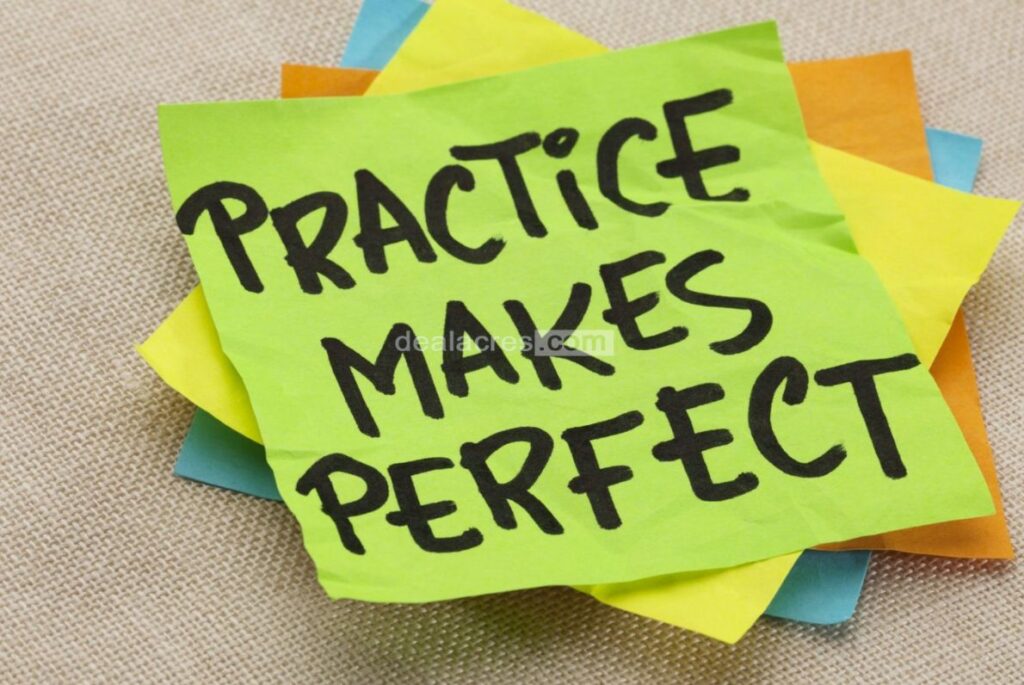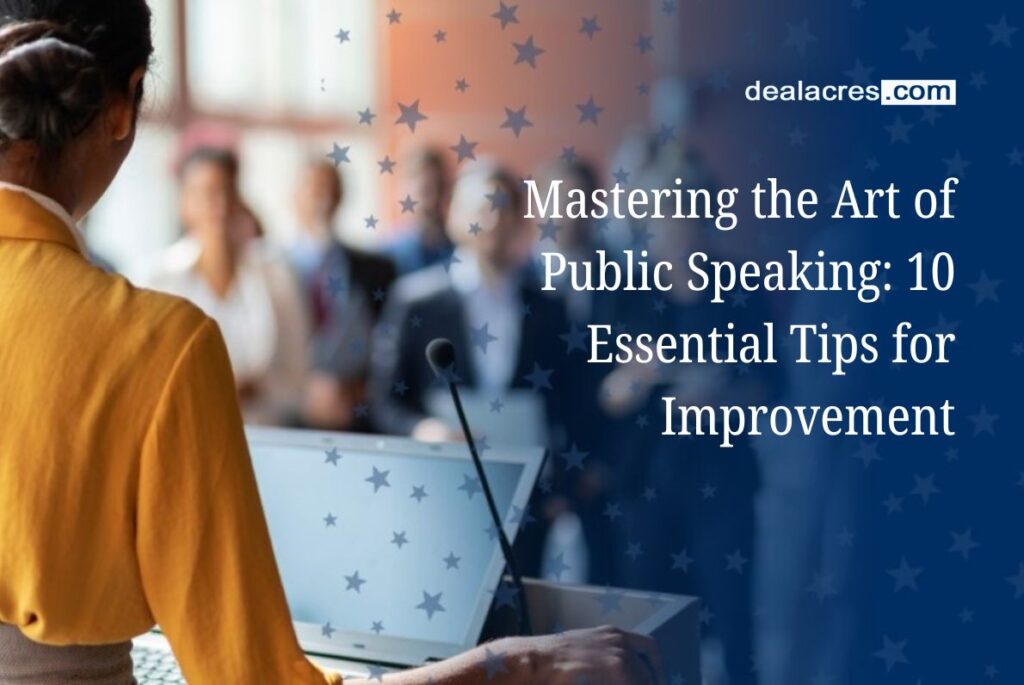Introduction:
Speaking in front of people is an important skill that can bring many good things to your personal and work life. It doesn’t matter if you’re talking to a big group, giving a presentation at work, or just talking at a social gathering – getting better at speaking in public can make you feel more sure of yourself and leave a strong impression. In this helpful guide, we’ll talk about ten tips to improve public speaking. We’ll cover everything from getting over the nervous feeling before speaking to keeping your audience interested.
Imagine if talking in front of others could be less scary and more enjoyable. That’s what we’re aiming for with these tips. These suggestions can make a big difference if you feel nervous about speaking or want to get even better. So, let’s begin the journey to becoming a more confident and effective public speaker.

- Understand Your Audience:
Before you start speaking in front of a group, it’s important to know who you’re talking to. Think about what they like, how much they already know, and what they expect to hear from you. This helps you adjust what you say to match what they care about, keeping them interested and making your talk stick in their minds. It’s like talking to friends – you wouldn’t share the same stories or jokes with everyone. Understanding your audience is like knowing your listeners so you can speak in a way that really connects with them.
- Overcome Stage Fright:
Many people get scared when they have to speak in public, and this is called stage fright. But don’t worry, it’s normal! To feel better, try some simple tricks. Take deep breaths to calm yourself down, imagine doing really well, and begin by speaking in front of a small group. As you get used to it, your fear will get less, and you’ll become more confident over time. So, take it step by step, and soon, speaking in public won’t be as scary as it seems. You can do it!

- Practice, Practice, Practice:
Practice is key to becoming a great speaker. Before your big talk, practice a lot. Stand in front of a mirror and say your speech. You can also record yourself or talk to a friend or family member. This isn’t just about remembering your words but also about getting better at speaking and moving. Practising helps you feel more comfortable and confident. It’s like when you learn a new game – the more you play, the better you get. So, don’t forget to practice, practice, practice before you step up to speak. It’s a secret weapon to make you a fantastic speaker!
- Work on Your Body Language:
Good communication is not just about what you say but also about how you express it. Think about your body language, your face, and the way you move your hands. Stand up straight, look people in the eyes, and use your hands to show what you’re saying. This helps make your message stronger and lets you connect better with the people listening. It’s like showing with your whole self that you’re interested and confident. So, next time you talk to someone, remember it’s not just your words but also how you carry yourself that makes your communication effective.
- Develop a Strong Opening:
Start your talk in a way that makes people really interested! You can begin with a cool quote, a surprising fact, or an exciting story that sets the mood for your speech. Doing this creates a good first impression and gets the audience hooked. Think of it as grabbing their attention right from the beginning – it’s like saying something interesting that makes everyone want to hear more. So, when you’re getting ready to talk, remember to start with something cool to make your audience excited and ready to listen!
- Organize Your Content:
When you talk to people, it’s like telling a story. Start by saying what you’re going to talk about (that’s the introduction), then share the main things you want to say (that’s the body), and finally, finish by summarizing what you said (that’s the conclusion). Make your ideas simple so everyone can understand, and use little signs (transitions) to help move smoothly from one part to the next. Imagine your speech is like a clear path – when it’s organized, everyone can follow along easily and remember what you said. So, keep it neat, and your words will stick with your audience.

- Master the Art of Pausing:
Taking short breaks while speaking is like pressing pause during a movie. It gives your listeners time to understand what you’re saying, highlights important parts, and lets you gather your thoughts. These intentional breaks, called pauses, are super useful in public speaking. You can use them to stress key points and manage how fast or slow you talk. Just like how a good storyteller uses pauses for effect, you can use them to make your speech more interesting and keep your audience hooked. So, don’t forget to include intentional pauses in your speaking – they’re like little moments that make your words more powerful.
- Utilize Visual Aids Wisely:
Using pictures or props during your talk can make it better. Imagine showing some slides or holding up something to help people understand what you’re saying. It’s like telling a story with pictures. But here’s the trick: don’t use too many of them. Pick the ones that really help your message, and don’t make things confusing. If your visuals are done well, they can make your talk more interesting and help people remember what you said. So, just like adding cool illustrations to a storybook, use visuals that go along with what you’re talking about, making your speech more fun and easy for everyone to follow.
- Connect with Your Audience:
Connect with your audience by talking directly to them. Use words that include everyone, share stories they can relate to, and ask questions to get them involved. When you connect with people on a personal level, it makes what you’re saying more powerful and easier to remember. So, be friendly, share stories everyone can understand, and ask them questions. Making this connection helps your audience feel like they’re a part of what you’re saying, making your speech or presentation much more interesting and memorable for everyone.
- Seek Constructive Feedback:
Ask for thoughts from your friends, teachers, or people who listened to you after you spoke. Hearing what they liked and what you could do better is super helpful. It shows you where you’re doing well and where you can get even better. Don’t be afraid of feedback; think of it as a friendly guide to make you stronger. Always be open to learning more and making your speaking skills even better. Just like practising a sport or a game, getting good at public speaking takes time and a bit of tweaking here and there. So, keep asking for feedback, learning, and improving!
Conclusion:
Becoming a proficient public speaker is a journey that involves practice, self-reflection, and a willingness to learn and adapt. By implementing these ten essential tips, you can enhance your public speaking abilities and confidently address any audience. Remember, public speaking is a skill that can be cultivated and refined over time, opening doors to new opportunities and allowing you to share your ideas with impact and influence.




